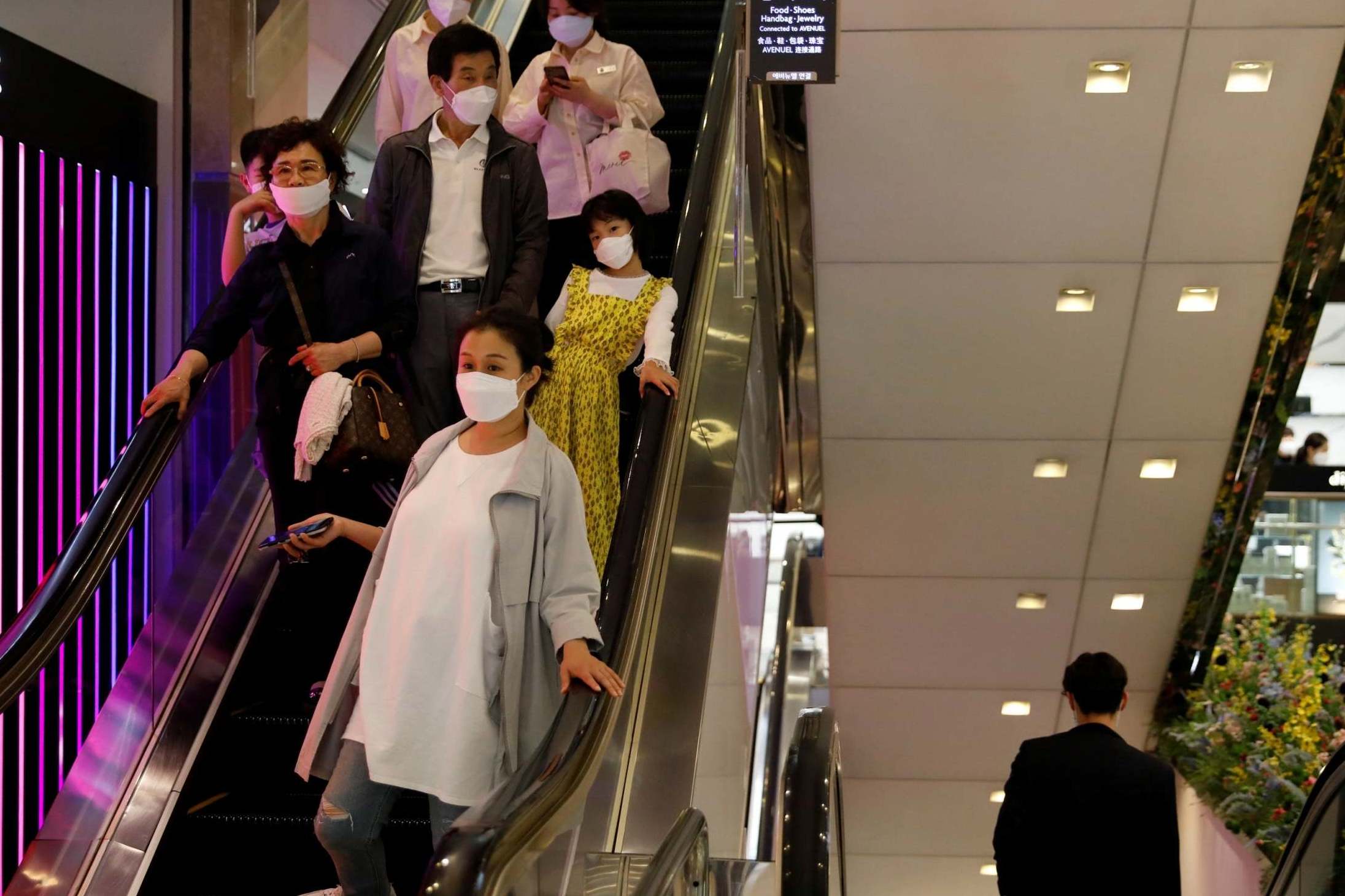Coronavirus: How NHS app hopes to follow South Korean model but Patient 31 acts as warning
Ministers say app could help end lockdown but strategy comes with privacy concerns, writes Conrad Duncan

As trials begin for the NHS contact tracing app this week, the UK government is hoping to replicate the success of South Korea in containing coronavirus while still allowing economic and social life to take place.
The East Asian nation has received praise for how it has dealt with the Covid-19 pandemic by using mass-testing, tracing technology and self-isolation to control its outbreaks without resorting to a strict lockdown.
During Tuesday's briefing Chief Scientific Adviser to the Ministry of Defence Angela McLean, said: "South Korea is really the place in the world that we can look to and say this works.
“It is a large country like we are. They did have quite a big outbreak actually that they brought under control with contact tracing.
“I think they are a fine example to us and we should try to emulate what they have achieved.”
However, the country’s response to the virus also provides warnings for governments, particularly in the early stage of its outbreak and a case known as Patient 31.
In early February, it appeared as though South Korea had managed to contain its coronavirus outbreak as case numbers stabilised at 30.
That all changed when the country's 31st case, a 61-year-old woman, ignored advice to be tested and attended two church services of a religious sect with at least 1,000 other members despite being ill, contributing to a sharp increase in infections over the following days.
The case sparked a scramble to test people who had attended the services and showed how quickly an outbreak can get out of control if just one person does not follow health guidance.
Since then, South Korea has managed to avoid another large spike in infections by closely tracking and isolating cases, using a smartphone app to give people location-based emergency messages to alert them to nearby confirmed cases of Covid-19.
Health authorities in the country have recorded daily case numbers below 100 since April thanks to the strategy and officials are now set to relax social distancing rules further this week.
The UK government is hoping its contact tracing app will achieve similar success and allow the public to return to some form of normality by informing people if they have been in close contact with someone who has tested positive for Covid-19.
However, this technological solution to the pandemic comes with privacy issues and some South Korean have expressed concerns about their government’s data-sharing, particularly over whether details about an infected person’s location could reveal their identity.
Although the NHS app does not work in exactly the same way as South Korea’s app, privacy campaigners in the UK have also repeatedly raised concerns about how data will be held over here.
The NHS app will keep a log of every other device using the service, anonymously, using a randomised ID number which the government has said cannot be traced back to identify a person.
When setting up the app, the only bit of data that a user needs to provide is the first part of their postcode.
The main worry is over the UK government's decision to take a centralised approach, meaning the anonymous data is fed to a computer server - a move which critics fear could open the door to pervasive state surveillance and privacy infringement.
Other countries have taken what is known as a decentralised approach, where the data sharing is kept between devices.
However, Matt Hancock, the health secretary, has said the app has “privacy in its design” because data will be kept between phones, until the moment an individual needs to get in contact with the NHS to be tested.
Dr Ian Levy, technical director at the National Cyber Security Centre (NCSC), has commented on the “balances and trades” which need to be made between individual privacy and the measures required to protect public health.
“The NHSX system as a whole does a good job of balancing the individual privacy needs with the public health needs,” he said.
“The privacy and security design is there to support the epidemiological model and the needs of clinicians who are managing the virus in the UK.”
NHSX has pledged to publish the source code of its app so it is open to public scrutiny and an ethics advisory board has been set up to oversee its use.
Additional reporting by PA
Join our commenting forum
Join thought-provoking conversations, follow other Independent readers and see their replies
Comments